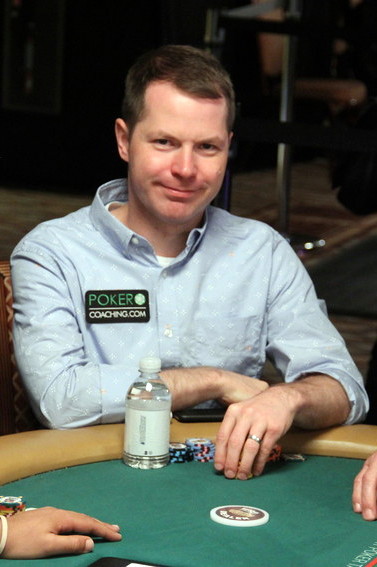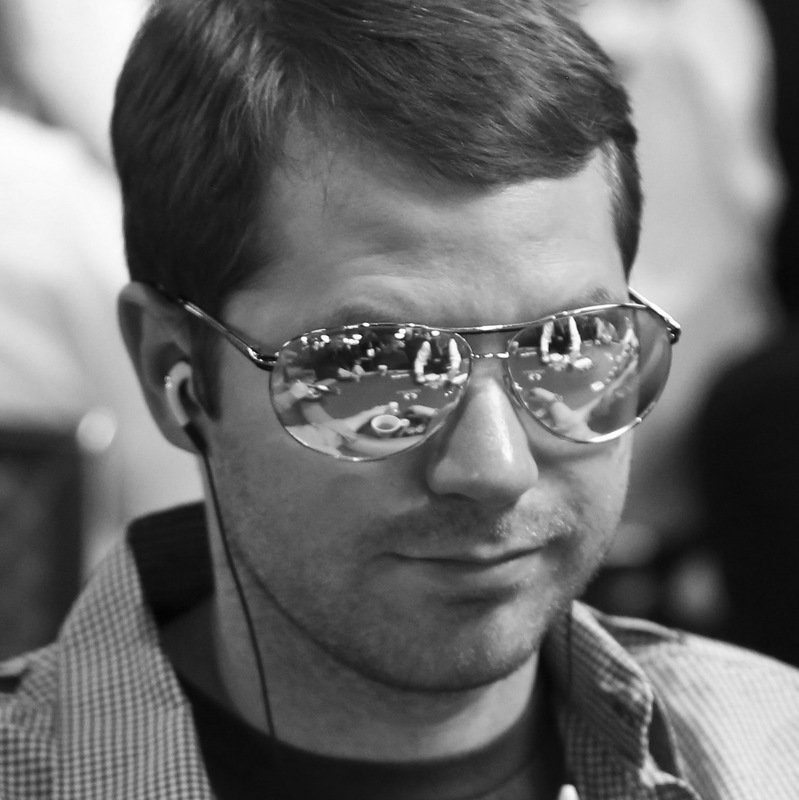What Losing 40 Tournaments In A Row Should Tell You About Your Poker Gameby Jonathan Little | Published: Nov 18, 2020 |
|
|
Card Player Magazine, available in print and online, covers poker strategy, poker news, online and casino poker, and poker legislation. Sign up today for a digital subscription to access more than 800 magazine issues and get 26 new issues per year!
 Someone recently asked me how many tournaments I have to lose in a row before I start to get annoyed. They also asked when I start looking for holes in my strategy. While the answers to these questions are probably obvious to most professional players, many amateurs come up with severely incorrect answers.
Someone recently asked me how many tournaments I have to lose in a row before I start to get annoyed. They also asked when I start looking for holes in my strategy. While the answers to these questions are probably obvious to most professional players, many amateurs come up with severely incorrect answers.
First off, you should try your best to remove your emotional attachment to your poker results, both good and bad. If you have watched me win a World Poker Tour event on television, you probably noticed that I did not jump up and down and yell about how I am the best poker player in the world immediately afterwards, which is what you might see from players who run hot enough to win a major event.
The reason why I do not celebrate is because I realize that when I buy into any event, I am going to place in each position some percentage of the time. If I happen to bust on the first hand, bubble, final table, or even win, I don’t care too much because I understand I am going to have a fairly random distribution of results over time, hopefully trending in a positive direction because I have an edge in the games.
Sometimes you are going to go 40 tournaments in a row without cashing, which has happened to me twice in my career. While the experience is certainly not fun, you must accept it will happen if you play enough tournaments.
Going on a substantial downswing does not necessarily mean you are playing poorly, although it could be an indicator. Assuming you have a large enough sample to know you are a winning player, a routine downswing should not cause concern. The reason most players get depressed over long downswings is that they are either playing way too large for their bankroll, or they have not played enough games (or done the math) to realize how much variance there is in poker.
As a quick example, I once won three tournaments in a row and then lost 30 tournaments in a row after that. Does this mean I suddenly forgot how to play after winning three tournaments in a row? I don’t think so.
Whether you are winning or losing, you should constantly look for leaks in your game. An extended losing streak should not alter your study time too much, assuming you spend a decent amount of time studying poker on a daily basis even when winning.
When I used to play sit-n-gos online, I would play roughly eight hours per day and study four hours per day. I am confident this is why I was one of the biggest winners at that game. When I play poker today, I write down almost every hand I play and review them both at the end of every day and occasionally when I have free time at home. I suggest you do the same. If you are not looking for leaks and constantly improving your skills, you are certain to fall behind.
Everyone who takes poker seriously should get a poker coach. I have paid well over $25,000 for private coaching throughout my career and I firmly believe that was the best $25,000 I have ever spent. If I could go back in time, I would have actually spent substantially more.
When I used to play a lot of sit-n-gos, I noticed my return on investment was slowly dwindling. I hired a coach, paid him $5,000 for 10 hours of his time, and watched my return on investment immediately rise by two percent. While this may not sound like a lot, I was playing around 2,000 $200 games per month, meaning this coaching made me an additional $8,000 per month. Obviously, that is money well spent.
At some point, you will find you no longer need a private coach. Instead, find a group of peers who play similar games as you. I have a close group of friends I regularly talk to about hands and other poker-related concepts. We bounce ideas off each other and constantly try to find holes in each other’s strategies. If you try to master this game alone, you will find it impossible.
I understand that paying hundreds of dollars per hour for private coaching is not realistic for most poker players, so I made my training site, PokerCoaching.com, which features over 1,000 interactive hand quizzes, monthly in-depth homework assignments, gigantic courses, live webinars, and private streams.
In addition to having lots of content for novice players, I have also hired many of the best players in the world (including James Romero, Faraz Jaka, Matt Affleck, Jonathan Jaffee, Girafganger7, and many more) to make high-level, cutting-edge content that I personally learn a lot from. If you are looking to take your game to the next level, check out PokerCoaching.com. Good luck in your games! ♠
 Jonathan Little is a professional poker player and best-selling poker author with more than $7 million in live tournament earnings. If you want to learn how to play fundamentally sound poker and increase your win rate, check out PokerCoaching.com. Click here to try PokerCoaching.com for free.
Jonathan Little is a professional poker player and best-selling poker author with more than $7 million in live tournament earnings. If you want to learn how to play fundamentally sound poker and increase your win rate, check out PokerCoaching.com. Click here to try PokerCoaching.com for free.
Features
The Inside Straight
Strategies & Analysis